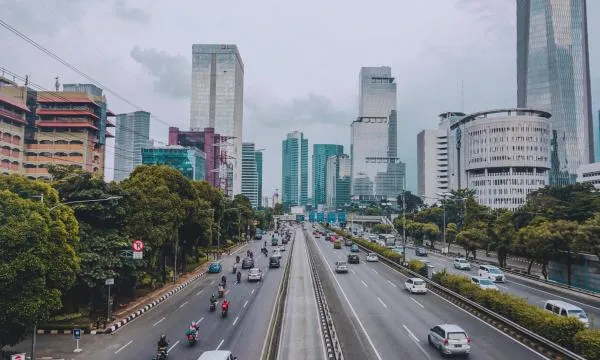
Indonesian banks to reflect COVID's fatal impact on Q2 results: Fitch
But the loosening of loan restructuring rules should help alleviate negative effects.
Indonesian banks’ Q2 results are expected to show stress on banks’ asset quality and profitability, as the coronavirus’ effects only began to show its impact during the past quarter, reports Fitch Ratings.
Banks are expected to begin releasing their quarterly report from end-July.
The Q1 financial results of the country’s 12 largest banks only incorporated some economic impact of the pandemic, as Indonesia only reported its first COVID-19 cases at the beginning of March. The large banks' average non-performing loan (NPL) ratio remained steady at 2.6% Q1 2020.
However, their average "special-mention" loan ratio rose to 6.2% from 4.6% at end-2019. These are loans overdue by up to 89 days or otherwise noted as being at higher risk of becoming non-performing and are an early indicator of potential build-up in problem loans.
Stress will also be observed in a spike in restructured loan ratios, particularly those classified as "current", which make up 2.1% of loans.
Despite these, “special-mention” loan ratio is not expected to put significant pressure on banks’ NPL ratios, as the government’s relaxing rules on loan restructuring have led to a surge in overhauls.
The regulator reported that around 10% of industry loans have been restructured by 26 May, which is expected to limit deterioration in banks’ NPL rations.
The looser loan classification will also reduce stress on regulatory provisioning, as will a relaxation on provisioning under the IFRS 9 accounting standard, which Indonesian banks implemented from Q1.
However, Fitch warned that banks that rely heavily on these changes to reduce provisions and maintain profitability in 2020 could face a considerable spike in credit costs when the relaxation ends in March 2021 if recovery in the economy and borrower repayment capacity lags expectations.
“The large Indonesian banks' high net interest margins (NIM) of 5.8% on average at end-Q1 should continue to provide a buffer to absorb losses from higher credit costs and weaker income from reduced economic activity. Whilst margins will not be unaffected, the effects on NIMs are likely to be less pronounced as most restructuring requires borrowers to continue to pay interest,” the report added.
On the upside, capital buffers at the 12 largest banks remain satisfactory, as reflected in their average common equity Tier 1 capital ratios of 18% (2019: 20.6%), which is amongst the highest amongst banking sectors in the Asia-Pacific region, according to Fitch. These buffers should provide adequate cushion to withstand weaker asset quality.
“Liquidity at the large banks should remain ample, helped by their deposit-dominated funding profiles and low reliance on wholesale funding,” the report added.
Photo courtesy of Pexels













 Advertise
Advertise










